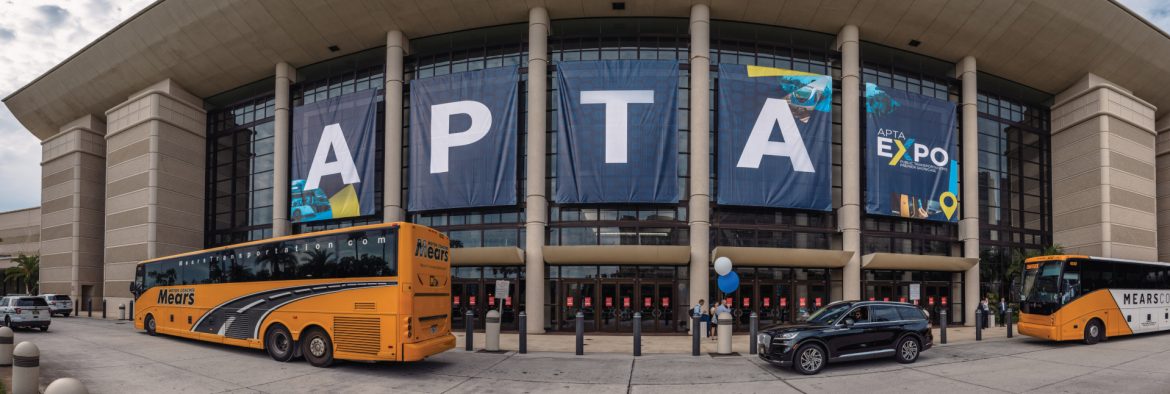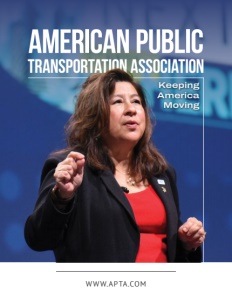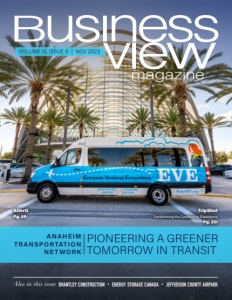American Public Transportation Association
Keeping America Moving
Across the county Transit’s future looks bright as it steadily gains popularity
With approximately five percent of working Americans using it for their regular job-related commutes, public transportation has never been more important. To this end, the American Public Transportation Association (or APTA) is helping lead the way in the realm of public transportation. The APTA is a nonprofit group, composed of some 1,500 member organizations in both the public and private sectors, working to promote and advocate for the interests of the American public transportation industry.
We recently caught up with APTA President and Chief Executive Officer Paul P. Skoutelas, and he told us more about the APTA’s important work and its mission. Skoutelas also shared more about the history of the APTA International Public Transit Expo/Conference and the raison d’être for this unique event.
“APTA saw a need,” he says, “to establish a flagship event, where its members and other sectors of the public transportation industry could foster collaboration, share knowledge, and advance the interests of the industry. In 1981, APTA held its first International Public Transit Expo in conjunction with its annual meeting in Chicago, which attracted more than 5,500 attendees and more than 225 manufacturers’ exhibits that covered two levels of Chicago’s McCormick Place.
Today, APTA’s expo is the largest public transportation event in the world. Our 2023 event in Orlando attracted approximately 12,000 attendees and 663 exhibitors from around the world.”
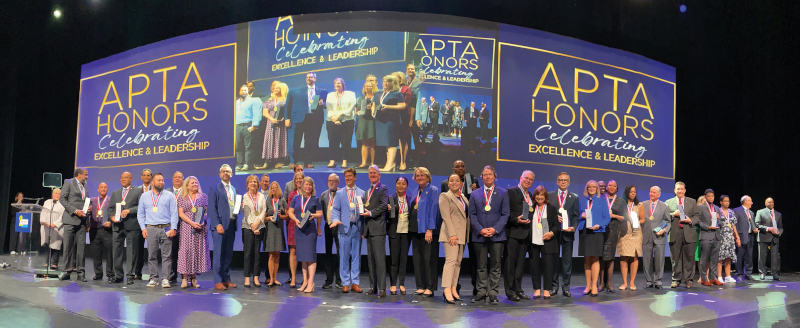 Historically, an average of some 10,000-12,000 people attend the expo, which occurs every three years, as Skoutelas informed. He spoke further about what its many activities involve.
Historically, an average of some 10,000-12,000 people attend the expo, which occurs every three years, as Skoutelas informed. He spoke further about what its many activities involve.
“Attendees can engage in workshops, experience technical tours, network with colleagues, and hear from thought leaders and industry experts who explore cutting-edge topics, such as transformative technology, mental health awareness, community-building, innovative funding, safety and security, workforce development and worldwide mega projects, to name a few,” he says.
“The exhibition hall offers a robust showcase of the latest-breaking technologies, products and services designed to offer solutions to increase and retain ridership, reinvent the rider experience, infuse technology to enhance convenience, improve security, transition to a more sustainable system, boost system-wide reliability and beyond.”
What does the landscape of the transit industry look like over the coming decade? Skoutelas shared how the APTA will continue to be a viable voice for the public transportation industry. Public transportation’s future is brighter and more essential than ever, he projects.
“We are entering a new era of American mobility,” he adds, “as communities strive to create a more equitable, efficient, vibrant, and environmentally sustainable future and as our industry invests in new types of vehicles, operating systems, and skilled workers.
The public transportation industry has successfully reinvented itself several times over the past 200 years and will continue to do so today to improve the quality of all people’s lives by providing convenient, dependable, and desirable access to opportunity. APTA’s Transform Conference and Expo exemplify the energy and creativity that drive the public transportation industry. I don’t see that changing anytime soon.”
This year’s APTA Transform Conference’s core focus was summed up by its theme: “Next starts here.” It was designed to be a once-in-a-generation catalyst to help shape the future of public transportation. The show floor featured new products, services, and hands-on demonstrations, as well as the most advanced buses, rail cars, and autonomous vehicles.
In addition to the exhibits, it offered exclusive educational programs, technical tours, and networking events, where attendees were introduced to new people, new businesses, and new ways of thinking. For example, sessions covered major topics, such as recruiting frontline workers; examining fare policies, digital collection tools, and innovative funding initiatives; investing in zero-emission electric buses, along with the infrastructure to support them; expanding access to under-served communities; and enhancing the customer experience to help win back riders, as Skoutelas informed.
Many important trends, hot topics, and relevant tech-related matters were also discussed and engaged with at the conference, as Skoutelas noted.
“A top priority is fulfilling the promise of the Infrastructure Investment and Jobs Act (or IIJA), which depends on the promised federal monies and policies that make the federal-state-local funding partnership so effective,” he shares. “We have a historic opportunity not just to address the ‘state-of-good-repair’ backlog but to re-invent modern public transit with more BRT (bus rapid transit) services, low-or no-emission buses and trains, and greater access to mobility for all.”
Among the attendees was the U.S. Rep. Sam Graves (R-Mo.), the chairman of the House Transportation and Infrastructure Committee. Graves came to the APTA Expo to discuss this critical piece of legislation with fellow attendees. He also toured the show floor and spoke with exhibitors.
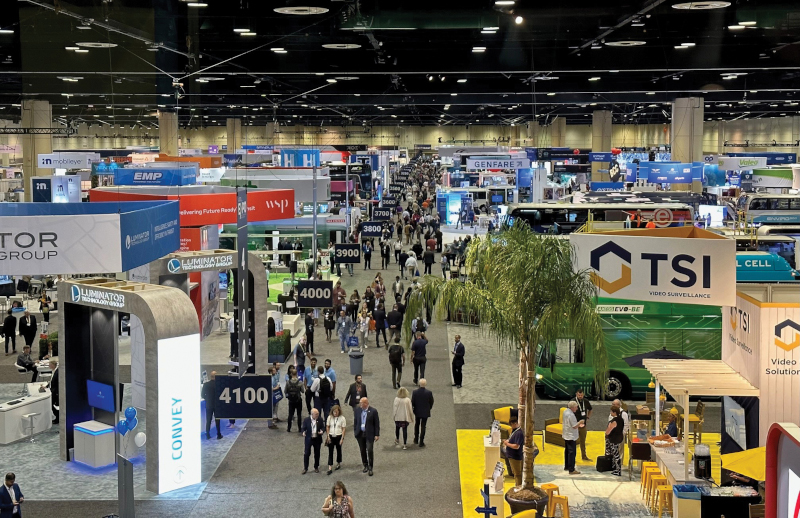 A post-COVID model
A post-COVID model
“Another pressing issue is building a knowledge-based, future-ready workforce in a post-pandemic environment,” says Skoutelas, “where every industry is competing for the best and brightest workers. Transit workforce shortages in the areas of operations, maintenance, and customer service severely affect transit agencies’ ability to provide safe, reliable service to the communities they serve. Attendees had the opportunity to learn successful strategies from each other, such as innovative workforce programs at the Chicago Transit Authority, Transdev, Easter Seals National Center for Mobility Management, and Amtrak.”
Technology is another trend at the heart of public transportation. The integration of artificial intelligence, advanced data analytics, and smart infrastructure is redefining ridership. One talk at the expo explained how AI and augmented reality are being used in today’s industry and the policies and cautions for using these new technologies responsibly.
“A final trend is societal shifts and how public transit agencies are increasingly expected to help address complex social, environmental, and economic issues far beyond the traditional role of moving people from one place to another,” says Skoutelas. “This trend, which is directly tied to having a skilled workforce and advanced technology, will increase. Several sessions and panel discussions addressed these issues for attendees.”
He also pointed out that the event featured more than 250 speakers, and it also included a federal partners update from the Federal Transit Administration, as well as the first-ever public transit equity summit. Plus, there was an educational session on public transit’s critical role in managing special events, and there was an exclusive session with Janno Lieber, the chairman and chief executive officer of the New York MTA (or Metropolitan Transportation Authority), on supporting mass transit in the wake of a COVID pandemic-induced ridership crisis and a multi-billion-dollar fiscal cliff.
“One of my favorite highlights,” says Skoutelas, was “the APTA Honor Awards and Hall of Fame Inductees Ceremony, (which featured) 14 organizations and six leaders in North America who have demonstrated significant leadership, are outstanding role models of excellence and whose accomplishments and innovations have greatly advanced public transportation.”
An APTA-tude for public transit
Skoutelas characterizes the overall response from attendees as very positive.
“APTA’s Expo is a high-energy event,” he says, “with conversations and connections happening all the time. Networking is always the number-one benefit cited by attendees, and so far, that is what we are seeing again in this year’s survey results that are starting to come in.”
Here are just a few of the enthusiastic comments about the event:
- “This is the most valuable four days of the year for transit professionals.”
- “APTA is a great opportunity to highlight the progress we are seeing in transit. The knowledge and experience at this conference are astounding, and I can’t wait for future events.”
- “APTA is the best way to connect with industry leaders, peers, and vendors and learn about current best practices and innovation in transit. I always leave knowing more about the industry, thanks to the informational committee meetings and sessions.”
- “APTA goes above and beyond, getting amazing keynote speakers to present. I often find myself discussing and bringing up elements of their presentations with my workforce.”
- “The conference was well organized and offered unfettered access to transit leaders and FTA officials. The sessions were thoughtful and offered a diverse set of speakers bringing new ideas to take home and a sense of inspiration for the future. No matter what role you play at an agency or in the private sector, you will benefit from attending the conference, as it gives a holistic view of the successes and challenges facing the industry.”
- “The time spent at APTA conferences is unmatched in value, from a social and professional level. It’s a wonderful opportunity to learn and forge new connections in the industry, not to mention an opportunity to hear from FTA officials!”
- “The APTA Transform Conference and Expo was a valuable experience for me as a younger engineer in the transportation industry, both for making connections and learning about new advancements and technologies I can recommend to my transit agency clients.”
Such testimony is further proof that America keeps moving forward towards the benefits of public transportation.
AT A GLANCE
The American Public Transportation Association
What: a nonprofit that promotes the interests of the public transportation industry
Where: Washington, D.C.
Website: www.apta.com
